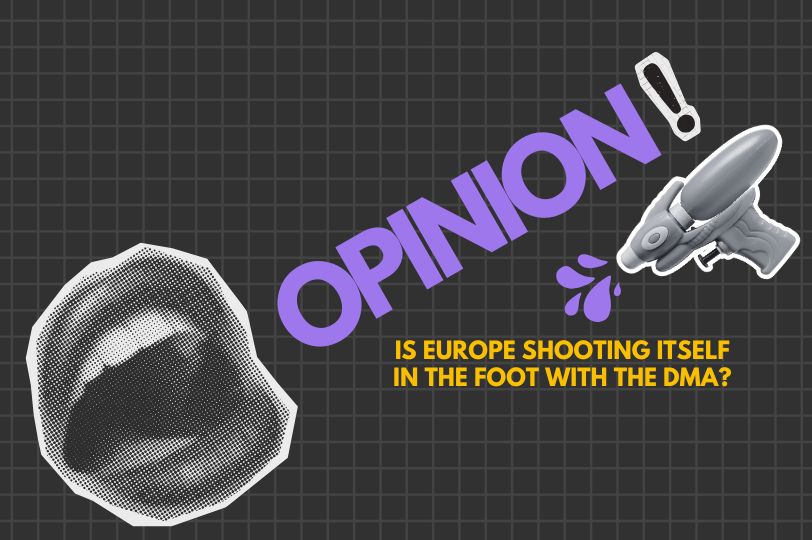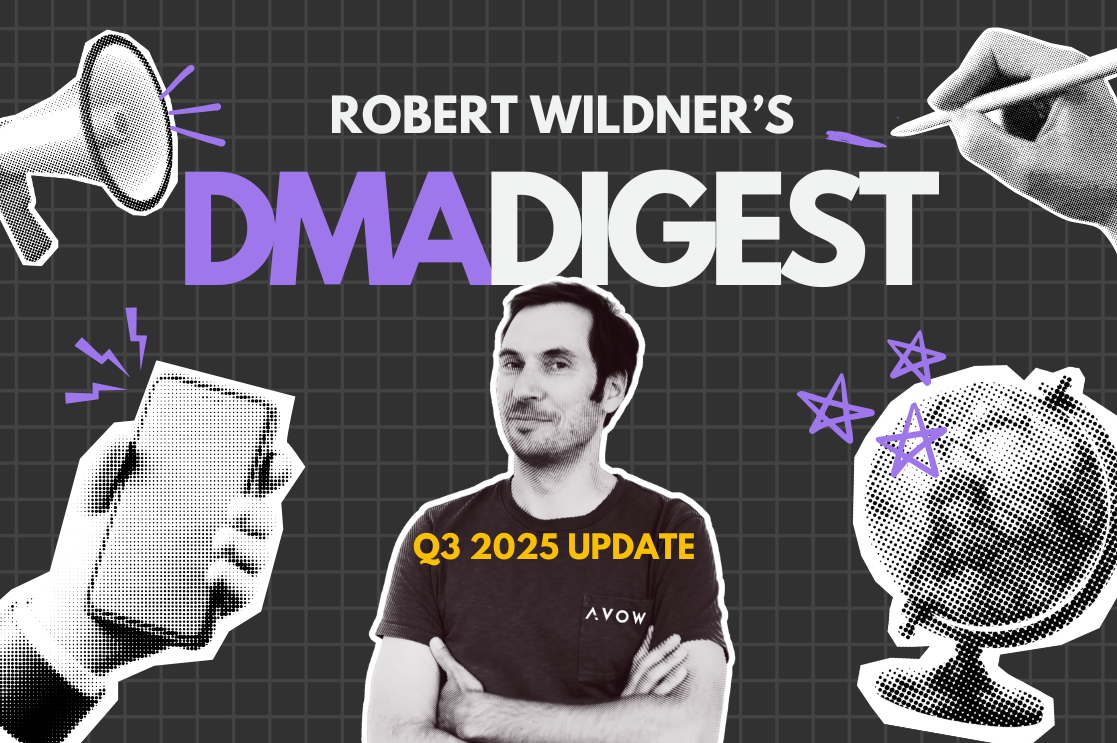DMA Digest Q3 2025: DMA is Back with a Bang!
Welcome to my new, improved article examining the effects of the EU’s Digital Markets Act (DMA) on the app economy. Rather than rehashing the details of the daily squabbles surrounding Brussel’s flagship digital antitrust legislation, I’ve decided to pull focus and look at the big picture every three months. And what a quarter it’s been! But before I get into it, let’s begin this update with a story that encapsulates the optimism of the industry since the DMA was introduced in March 2024.
As Pocket Gamer reported, late last month, Samsung announced that it is expanding its mobile cloud gaming service to Europe, enabling Galaxy users here to game without downloads or installations. While this isn’t a direct win for the DMA, it’s nonetheless a sign that, since the EU decided to dismantle the monopolies that Apple and Google once enjoyed in the app business, growth is being felt among some of the other players. Thus, while much of the last quarter has been framed by the DMA’s role in the ongoing tariff dispute between the White House and Europe, which may not, in fact, even be legal!—it’s important to remain constructive and focus on the big picture, which is what I plan to do going forward. So let’s look at what happened in Q3.

Apple Plays Chicken with Brussels
The big news in the last quarter is that, having acted very coy since getting fined 500 million Euros in April for DMA noncompliance, Apple finally capitulated in June, and is now allowing European iOS users the ability to download apps from outside the App Store.
Of course, getting here wasn’t easy. Earlier in June, Apple conversely looked like it was gearing up for a fight with Brussels. Not only did the company suggest that it was going to appeal its record noncompliance fine but it also indicated that it intended on disabling AirDrop and withholding certain features in its latest EU iOS update.
But facing the threat of fines amounting to 22 million Euros a day for continuing to defy the EU over compliance, Tim Cook’s company backed down, participating in EU workshops designed to help it align with the DMA, and promising iPhone users new found freedoms.
So has Apple learned its lesson? You wouldn’t bet on it. After all, the company is still trying to appeal that hefty fine from April, leading a lobby led by Epic Games to complain that Europe is being too lenient. Watch this space.

Google Folds, Meta Sticks, and Microsoft Twists
Elsewhere, there have been the usual twists and turns among the DMA’s Big Tech gatekeepers.
First up, Google. Faced with a potentially painful DMA fine for self-preferencing its own services on its search engine, the company also buckled over summer under pressure from the EU. In a double victory for the DMA, the Silicon Valley giant is both offering to revise its Play Store fees as well as introduce a price comparison box on its search engine, so that users can get the best deals—not just Google’s.
Conversely, Meta is point-blank refusing to amend its pay-or-consent model on its apps and platforms such as WhatsApp, Instagram and Facebook. And all this after it faces daily fines of up to 5-percent of its global revenue for continuing to do nothing about complying with the DMA following its landmark fine of 200 million Euros in April.
And finally there was Microsoft, which, despite rejecting noncompliance claims at an EU meeting, is nonetheless making more DMA-based changes to its Windows 10 and 11 operating systems, including mobile editions, allowing users to delete its app store, select a default browser that isn’t Microsoft Edge, and open pages using search engine Bing via a preferred browser too.
Thus, while these stories represent mixed fortunes for the DMA, things still seem to be leaning in its favour.

Opinion: Is Europe Shooting Itself in the Foot with the DMA?
With the aforementioned chaos of Trump’s tariffs and his potshots at the EU’s digital legislation—he even went as far as suggesting civil servants associated with it could be sanctioned—there’s been an uptick in anti-DMA discourse over the last quarter, with the US House Judiciary convening a panel to discuss the “threats” posed by the DMA.
Through this, a new narrative has emerged: that Europe is, in fact, shooting itself in the foot with the DMA. And nowhere has this been better articulated than in this article by the Information Technology and Innovation Foundation, which concludes that, “In prioritizing control over competitiveness, Brussels risks not exporting its standards but instead showcasing its inability to create a legal environment that fosters innovation, while also alienating its closest allies.”
Such sentiments are, of course, riddled with hyperbole. In choosing to dismantle Silicon Valley’s monopoly—just as the US Department of Justice is currently doing with Google—the EU is in fact promoting competitiveness and innovation. Moreover, it’s rigorously updating its approach too.
Following the announcement in July of its first review of the DMA—due May next year—Europe is also gathering opinion on how the legislation can be updated to accommodate AI. As such, rather than harming European interests, it’s clear the DMA is at the forefront of protecting them.
And once again, that’s all from me for this update. I’ll be back with another recapping this year’s DMA news in December
—Robert.
This piece first appeared on LinkedIn in Robert Wildner’s DMA Digest newsletter. Check out past editions and subscribe here: DMA Digest on LinkedIn
About the Author






